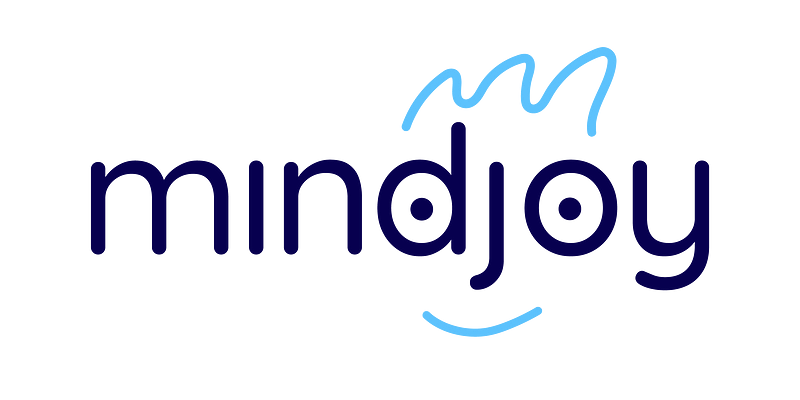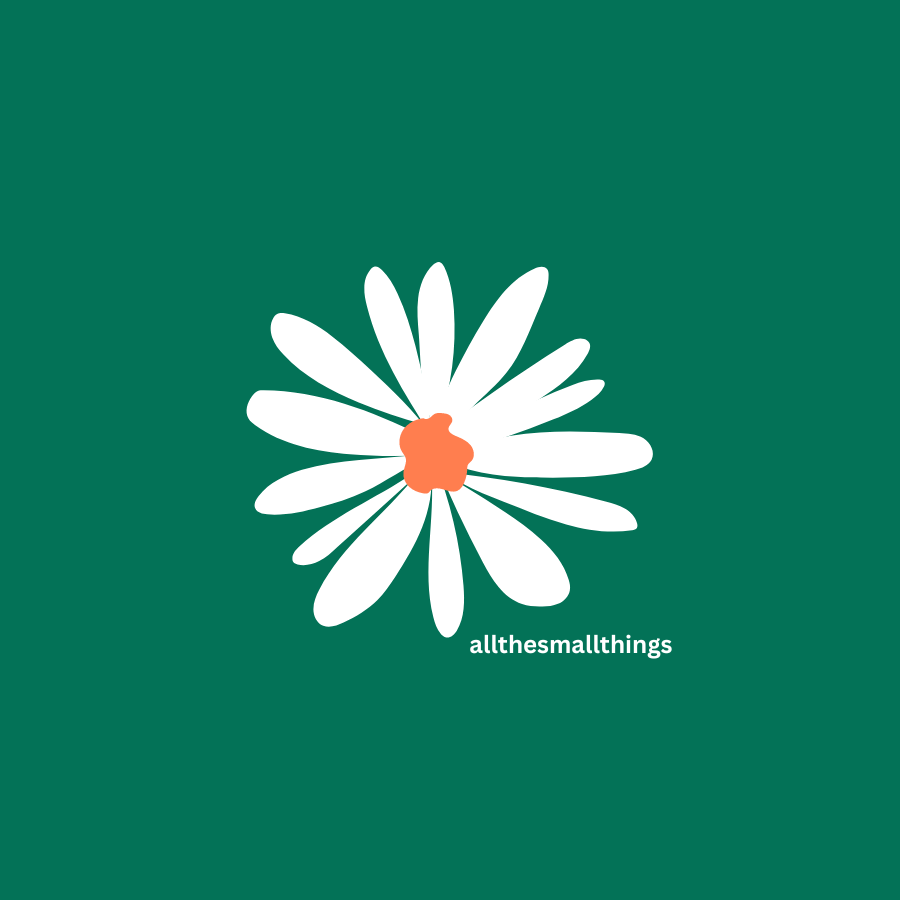Mindjoy: Communities that inspire a love for learning
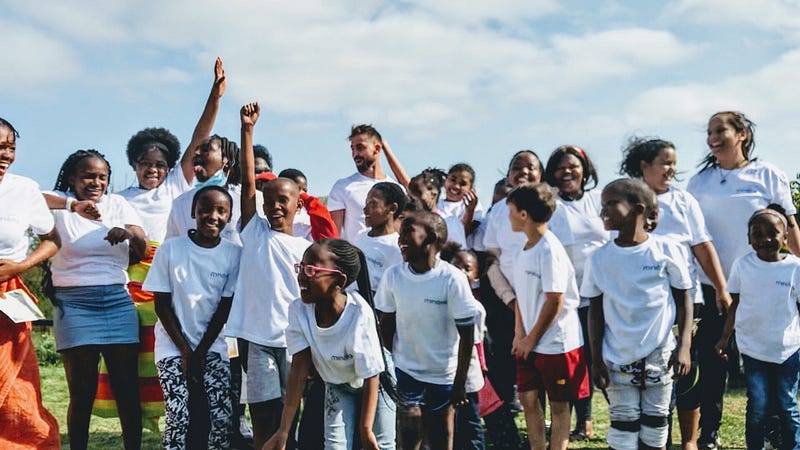
There are two ways to rapidly improve the world — the first being technology and the second through behaviour change. What we know, understand, and action, in other words, our education is the driving force behind both.
Mindjoy is on a mission building learning communities that inspire a love for learning by leveraging mobile technology and the best learning sciences. Since the start of the nationwide lockdown, we have been showing children, parents and coaches the power of learning online using only mobile phones. We’ve worked with parents, community coaches and organisations to figure out solutions that use what people have, makes sense in various contexts, is super lean and supports children’s learning.
Most recently, 15 individual donors helped us fund 30 children for an 8-week Mindjoy programme where they received learning support in maths and literacy in small group tutoring. They also had access to individualised adaptive learning apps and a digital library on their mobiles, data support and project-based learning for applied, fun lessons. On completion, we celebrated with a field trip to Silvermine Nature Reserve, boerie rolls, meeting friends in real life and Certificates of Awesomeness to celebrate our progress!
An overview of the South African schooling system from my perspective:
- Most South African children attend no fee-paying or low fee-paying schools.
- Families spend between R400 and R1200 per child on transport per child per month.
- Children spend 3–6 hours on average per day travelling to and from school.
- Even though the government spends about R1700 per learner/per month; 41% of Grade 3 pupils in the Western Cape cannot read, write or count at the appropriate level for their age.
- One in four Grade 1 learners don’t make it to Grade 7. The biggest drop — more than 150,000 pupils — occurs between grades one and two. About one in every three children in South Africa has to repeat a grade at school.
Curiosity and childhood are synonymous. An excellent occurrence if you work with children ages 6–12. Children are natural learners, and incredibly curious, which an excellent thing as curiosity is the engine of achievement. Mindjoy creates contexts in which individuals have agency and feel motivated to take charge of their own learning. This way, we believe villages can educate their children.
Things we’ve learned from Cohort 2
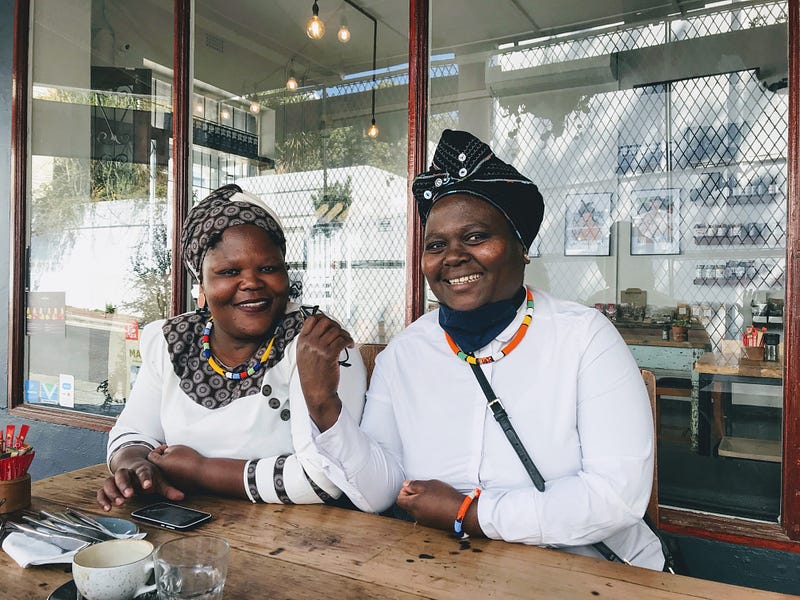
The Human Factor
Leveraging technology is not possible without our community coaches. Having a caring adult alongside learners on the learning journey makes all the difference in holding learners accountable, encouraging them and understanding the complexities that exist in different contexts. Community coaches focus on helping children build good learning habits through daily practice and serve as the guides on the side to support learners with the obstacles that potentially deter them. They are also essential links in connecting parents with their children’s learning.
Coaches understand the contexts of their communities but also how Mindjoy learning works thus bridging the gap in helping to contextualise how m-learning tools work and how to support children with learning at home but also how Mindjoy can make m-learning more accessible.
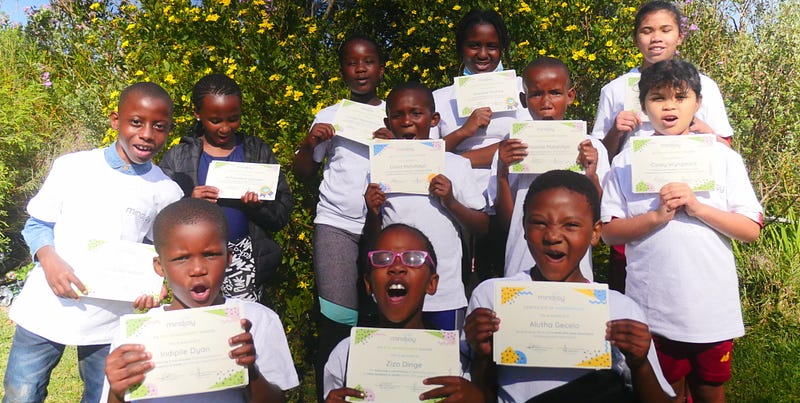
Building Successful Learning Habits
70% of children in the Mindjoy programme reached their 10min of maths and literacy practice a day. Some children paced their practice consistently throughout the week, whereas others did chunks of time throughout the week or on the weekends.
Impactful learning
Children complete a baseline assessment at the start and end of the 8-week programme. Baselines are important for 3 reasons; we can identify areas of learning we need to target, how to group children so that they work with peers on a similar skill level and to track progress over time Below is the % change in the maths baselines.
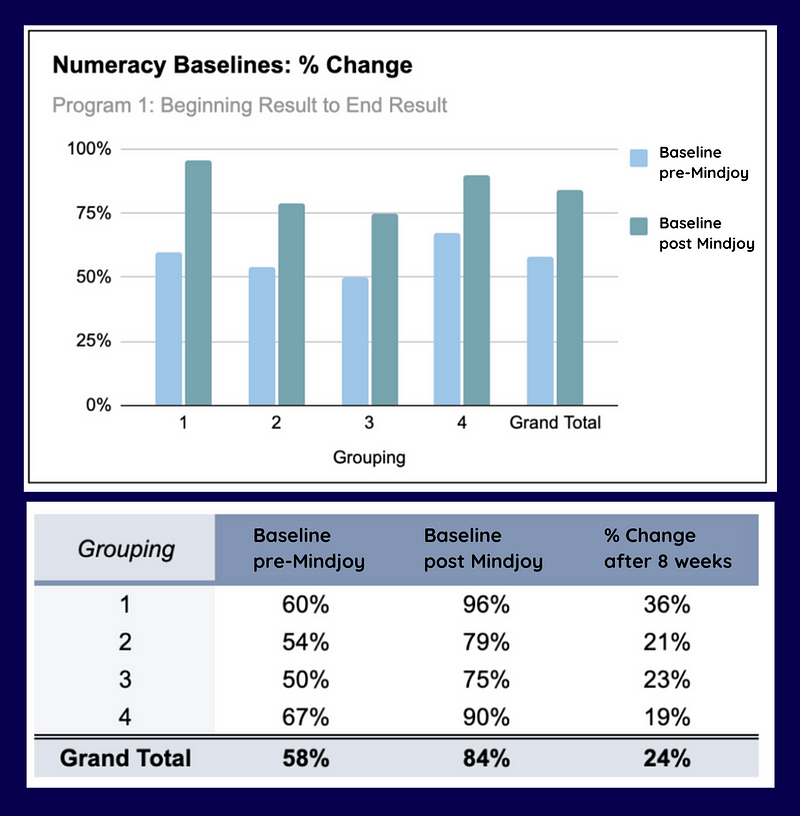
Cultivating a Love for Reading
1–10 South African Children have books in their homes. Mindjoy sets kids up with Epic! accounts, a digital library of 40 000+ books for children to escape to worlds of fiction and non-fiction. In 8 weeks, Mindjoy Cohort 2 learners spent 318 hours reading 1356 books.
Daily Active Users (DAU)
A learner is “active” if they complete 1 of 3 actions; attend a class, practice maths or practise reading. DAU reflects learners’ engagement across platforms.
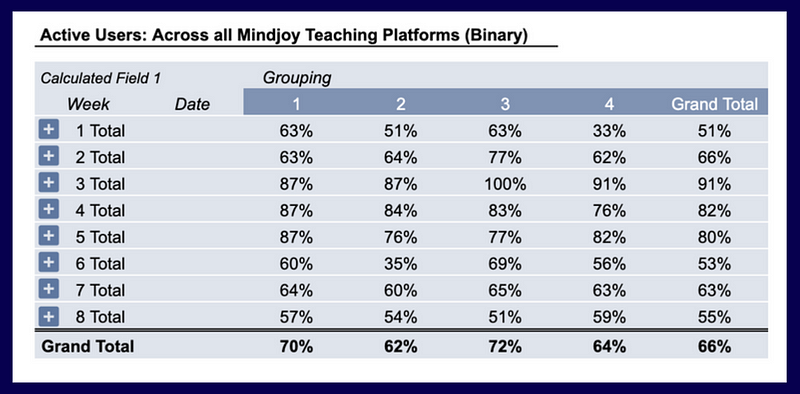
30 children started the 8-week programme. 4 Children became “inactive” due to parents unable to get them to a learning pod, children no longer motivated to be in the programme. 1 learner was too young for the programme, and so we had to support her with alternative learning support and lessons. Participation over increase and peaked in Week 5.
Learners returned to school in Week 6, which impacted daily learning activity as learners had to manage changes in school schedules, travelling time and balancing their workloads.
20 of the 30 learners from Cohort 2 would like to continue in Cohort 3 (Oct-Dec 2020).
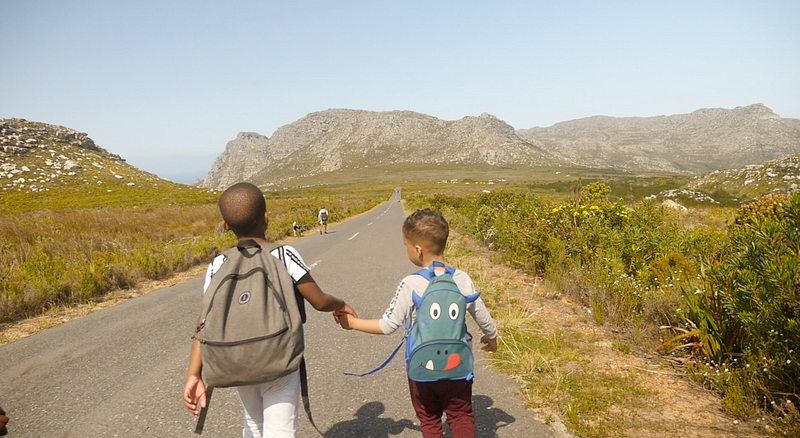
What’s next for Mindjoy?
While no one path or strategy guarantees learning and pedagogy that engenders intrinsic motivation, researching, reading and thinking about these ideas helps inform our practice. Understanding how we learn enables us to design better and improve learning experiences and how we can create accessible and sustainable solutions in urban and rural South Africa.
Mindjoy is continuously trying to think out the box and be informed by the best learning sciences and pedagogies to inform the work we do. We care about improving how we measure the effectiveness of our interventions, evaluating who are the best people to accompany us on our journey and why. We want to ensure that children learn more effectively and efficiently by mastering the necessary foundational skills required to succeed.
In the coming months of 2020 we will:
- Run another 8-week programme with 100 children.
- Measure and improve the impact of our interventions
- Find more individuals to fund our learning pods (R1000 or $60 funds child in a 2-month programme)
- Understand how we can scale more community-run pods and make learning accessible to more primary school children
How you can share Mindjoy
Spread the word by sharing this story or by funding a child’s learning.
